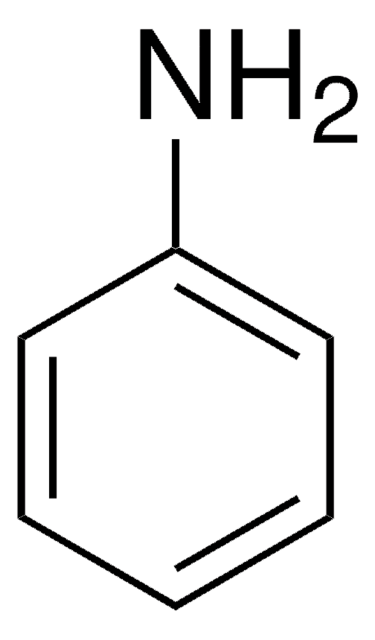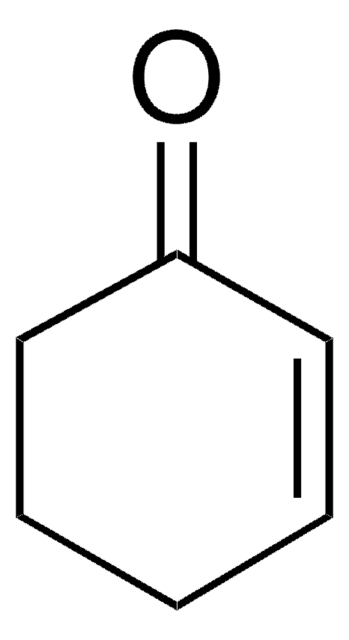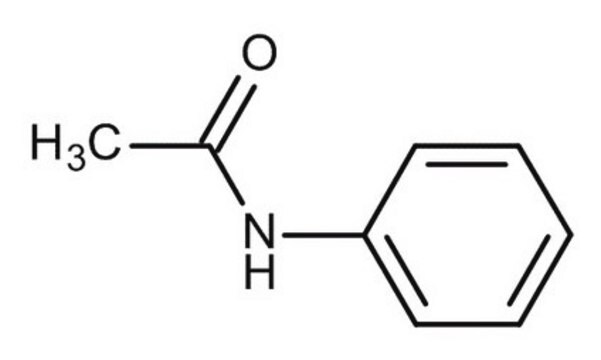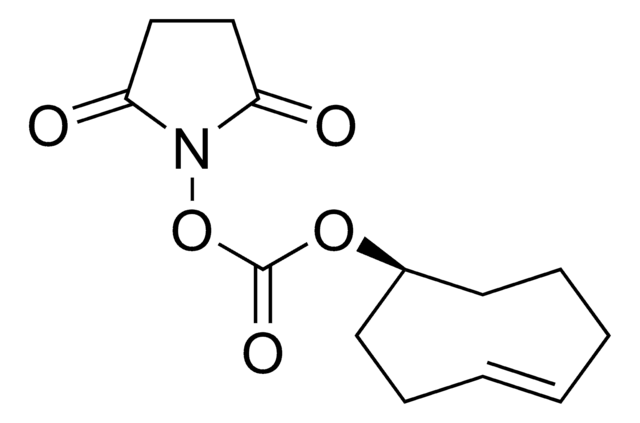All Photos(1)
About This Item
Empirical Formula (Hill Notation):
C8H12O
CAS Number:
Molecular Weight:
124.18
EC Number:
MDL number:
UNSPSC Code:
12352100
PubChem Substance ID:
NACRES:
NA.22
Recommended Products
Quality Level
Assay
95%
refractive index
n20/D 1.495 (lit.)
bp
195 °C (lit.)
density
1.013 g/mL at 25 °C (lit.)
functional group
ether
SMILES string
C1CC2OC2CCC=C1
InChI
1S/C8H12O/c1-2-4-6-8-7(9-8)5-3-1/h1-2,7-8H,3-6H2/b2-1-
InChI key
YWFPXWMSGJXUFS-UPHRSURJSA-N
Related Categories
General description
9-Oxabicyclo[6.1.0]non-4-ene is an epoxide. It undergoes halofluorination reactions with N-halosuccinimides and triethylamine tris-hydrofluoride or Olah′s reagent.
Application
9-Oxabicyclo[6.1.0]non-4-ene may be used in the following studies:
- novel bicyclo[4.2.1] and bicyclo[3.3.1] ethers
- trans, trans-2,6-dibromo-9-oxabicyclo[3.3.1]nonane and trans, trans-2,5-dibromo-9-oxabicyclo[4.2.1]nonane
- (Z)-2-(cyclooct-4-enyloxy)acetic acid.
Signal Word
Warning
Hazard Statements
Precautionary Statements
Hazard Classifications
Eye Irrit. 2 - Skin Irrit. 2 - STOT SE 3
Target Organs
Respiratory system
Storage Class Code
10 - Combustible liquids
WGK
WGK 3
Flash Point(F)
158.0 °F - closed cup
Flash Point(C)
70 °C - closed cup
Personal Protective Equipment
dust mask type N95 (US), Eyeshields, Gloves
Choose from one of the most recent versions:
Already Own This Product?
Find documentation for the products that you have recently purchased in the Document Library.
Karl J Bonney et al.
The Journal of organic chemistry, 76(1), 97-104 (2010-12-01)
9-Oxabicyclo[6.1.0]non-4-ene (1) undergoes intramolecular bromonium ion-assisted epoxide ring-opening using N-bromosuccinimide via a presumed oxonium ion that is subject to stereospecific, nonregioselective capture with added external nucleophiles producing novel bicyclo[4.2.1] and bicyclo[3.3.1] ethers. Carboxylic acids (as catalyzed by tetramethylguanidine), alcohols, water
Stereoselective synthesis of cyclic ethers via bromine assistedepoxide ring expansion.
Davies SG, et al.
Tetrahedron Letters, 26(11), 1461-1464 (1985)
Transannular oxygen participation in halofluorination reactions of 9-oxabicyclo [6.1. 0] non-4-ene [1].
Haufe G, et al.
Journal of Fluorine Chemistry, 46(1), 83-95 (1990)
High-yielding, two-step 18F labeling strategy for 18F-PARP1 inhibitors.
Edmund J Keliher et al.
ChemMedChem, 6(3), 424-427 (2011-03-02)
Our team of scientists has experience in all areas of research including Life Science, Material Science, Chemical Synthesis, Chromatography, Analytical and many others.
Contact Technical Service









